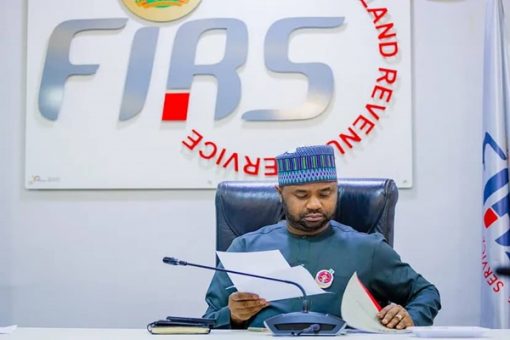
The Federal Inland Revenue Service (FIRS) has come out swinging in defense of Nigeria’s borrowing policies, insisting that debt remains a legitimate and necessary element of the country’s budget framework.
FIRS Chairman Zacch Adedeji made the bold declaration on Tuesday during a media briefing at the Presidential Villa, Abuja, emphasizing that borrowing is not only normal but essential for national development.
“Debt is a part of every viable nation’s economic ecosystem,” Adedeji told reporters. “No country in the world survives solely on its internal revenue. Borrowing allows us to fund critical infrastructure that, in turn, generates future revenue.”
The FIRS boss also highlighted a meteoric rise in revenue collection, revealing that Nigeria’s federal coffers swelled to N3.64 trillion in September 2025 — a staggering 411 percent jump from N711 billion recorded in May 2023. He credited this surge partly to reforms in tax collection, including the upcoming overhaul of Personal Income Tax (PIT) and Company Income Tax (CIT) slated for January.
Adedeji gave further insight into the government’s debt management, noting that Nigeria has moved away from the controversial “Ways and Means” financing through the Central Bank. Instead, he explained, the government now services its debts through structured federal loans, with regular principal and interest repayments. He claimed this approach has brought stability to the economy and alleviated pressure on the exchange rate.
“Borrowing to fund infrastructure projects like roads and bridges is a sustainable strategy,” he asserted. “It not only creates jobs but also boosts revenue through increased economic activity. As long as these borrowings are within approved limits, there should be no controversy.”
The FIRS chief also assured that revenue from non-oil sources continues to grow, bolstered by recent reforms aimed at broadening Nigeria’s tax base. “From January, we will roll out reforms in PIT and CIT to increase revenue collection and reduce Nigeria’s overreliance on borrowing,” he added.
His comments come amid ongoing debates over Nigeria’s mounting debt profile, with critics warning of potential economic pitfalls. However, Adedeji’s stance underscores the government’s commitment to borrowing as a strategic tool for development, provided it remains within approved thresholds.
As Nigeria navigates its economic future, the message from FIRS is clear: debt, when managed prudently, can be a powerful engine for growth rather than a burden to fear.







